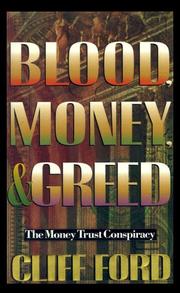Global Governance
Global Unified Belief System
Would Soon Follow
***A New Economic Order? - I Bet Your Life
Free market ideology melts down

China's stock market tumbles.
by Dean Baker
The near collapse of the world banking system and the internationally coordinated government rescue should put to end illusions about the unfettered market. Over the last three decades there has been an enormous upward redistribution of income in the United States and many other countries. This redistribution of income was justified as being the result of the efficient working of the free market. After this massive government intervention to rescue the banks from their own actions, such claims are no longer plausible.










4 comments:
Yes.
And Yes.
But only a small group will acknowledge a possible similarity.
And smaller still within that group will it be seen for all its worth.
tg
Johnny, just some thoughts beginning with: “The whole world lieth in wickedness. . . little children keeps yourselves from idols.” The end of Johnny’s first letter has sound but ignored instructions.
“The second lesson is that a strong role for the government is essential in the shaping of markets. The key assumption behind deregulation was that sophisticated actors in the financial sector would effectively police each other, punishing firms that did not follow sound lending practices.” This is a good example: since when do idol worshipers in an unpoliced, unregulated environment do what is right?
According to NPR Goldman Sachs saw what was coming and acted accordingly. Is that true? “It turns out that many of the most sophisticated actors had no understanding of what was going on in either the industry or the economy. The collapse of the housing bubble and the over-leveraged state of the major financial firms caught the industry by complete surprise.” Remember Robert Rubin? He came from Goldman Sachs and was Bills Sect. of Treasury.
Thanks set!
This ISN (NATO) article coming out of Zurich Switzerland likens America to a drunken sailor sleeping with every gutter snipe on port leave.
I guess the Bank For International Settlements did not foster enough cooperation between all banking parties inland and abroad during these times.
Its a good thing Nathaniel Rothschild sits on the Brookings Advisory Council. He'll be able to steer the next presidency in the right direction. Perhaps at the New Camp David at the Monaco Of The Balkans with Javier and Steinmeier.
Bretton Woods II never looked more deceiving.
Johnny
Bretton Woods II never looked more deceiving?
I bet your life on it.
Weeeellllll!!!!
What do you know?!?!?!?!?!
Speak of the Devil!!!!!
Brookings Also Envisions All Of Humanities Aspirations Ever Lucent In All Its Glory At The End Of The Financial Tunnel.
This should be a show stopper for everyone!!!
Fear!!! The World Is Rank With It!! Let Brookings Ease Their Pain.
The G20 Summit: Could the Financial Crisis Push Global Governance Reform?
http://tinyurl.com/5fzamt
October 24, 2008 —
"On October 22, the White House announced that President Bush invited the heads of state of the Group of 20 (G20) to join him for a summit on November 15 to discuss the current global financial and economic crisis. The G20 includes 10 major emerging economies of the world—including Brazil, China, India, Saudi Arabia, and South Africa among others—along with the members of the G8, Australia and the European Union. This could represent a major step toward a new architecture in global financial and economic relations as a first step in global governance reform more broadly. This will be the first ever meeting of G20 countries at head of state level and gives the next president of the United States an opportunity to demonstrate a commitment to the G20 as a better global steering committee than the G7/8.
As early as April 2004, we argued in a Brookings policy brief (Policy Brief # 131), and then again in April 2006 (Policy Brief # 152), that the G8 had lost in effectiveness and legitimacy and that a G20 summit forum would represent a pragmatic approach to reflecting the dramatic changes in the economic structure of the world, where the emerging markets economy now plays a critical role in maintaining global economic stability and prosperity. A G20 would include those countries whose participation in a search for effective solutions to key global challenges is essential. Among these challenges we highlighted the risks of financial instability and the need to reform the global financial institutions.
Since then the debate about global governance reform has continued. Despite spirited arguments from many sources, most prominently among them Canada’s former Prime Minister, Paul Martin, only limited progress has been made in opening up the G8 summits—by inviting only a few of the larger emerging market economies as mere guests, not full participants—and timid steps have been taken to reform the governance of the International Monetary Fund and the World Bank. In October 2007, we laid out the reform agenda (Policy Brief # 163) and concluded with this statement:
“We see renewed energy in the debates and even some progress on global governance reform. Whether this pace of change is sufficient, or whether it will take a major crisis to bring about fundamental changes in the global order and in global governance remains to be seen. We hope the specific ideas which we presented above can help speed up the gradual process. We know from history and bitter experience that global crises cause devastation and suffering. The creation of a global governance system which reflects the new economic and demographic realities and responds effectively to new global challenges of the 21st century is urgently needed to help avoid crises and create a better future.”
A major global crisis, unfortunately, is now upon us. We believe that the G20 summit, which Mr. Bush has now convened, is the right forum for forging a cooperative approach to the crisis and for building a stronger, more inclusive international financial and economic architecture, and beyond to addressing other global challenges such as energy and climate change, security and terrorism, poverty and health. This crisis and the G20 summit on November 15 provide a historic opportunity for the next president of the United States to chart a new course for global cooperation, overcoming the transatlantic and Western biases of recent years, integrating Asia and other emerging economies into the global leadership forum, thereby creating a more effective and legitimate global steering mechanism".
Fear!!!
The World Is Rank With It
Johnny
Post a Comment